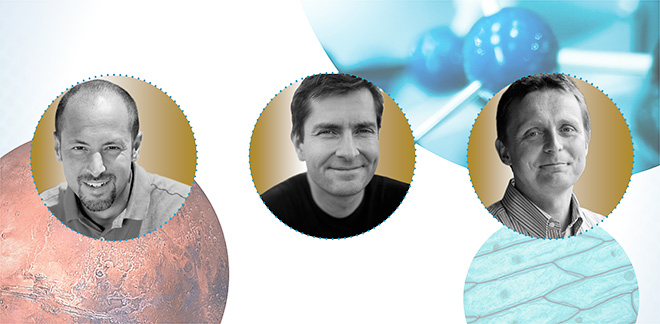
Last fall, we tracked the extent of foreign-born contributions to science, technology, engineering and math (STEM) fields with our “Immigrant Nation, American Success” infographics series. This year, we are pleased to see that immigrant scientists and mathematicians are again at the forefront of the STEM fields, earning the majority of the 2016 Blavatnik National Awards for Young Scientists and the Simons Investigators Awards.
The Blavatnik National Awards for Young Scientists were founded by Len Blavatnik, an American philanthropist born in the Soviet Union, to honor young scientists working to address societal challenges, and to promote breakthroughs in science and technology. One winner is selected from a pool of about ten finalists each year in the categories of Life Sciences, Physical Sciences & Engineering, and Chemistry, and each winner receives $250,000 in unrestricted funds.
The winner of the Life Sciences award was German-born Michael Rape, whom you may recognize as a winner of our own Vilcek Prize for Creative Promise. He is being recognized for his fundamental discoveries in ubiquitylation, a complex cellular process essential for information transfer and communication in nearly all organisms.
Michael is in good company — Of the three winners, he and one other, David Charbonneau, are foreign-born. And of the overall pool of winners and finalists, 21 out of 31 are foreign-born — at 67.74%, that’s just a little over two-thirds! These researchers represent a diverse array of countries, such as China, Russia, Romania, the Netherlands, Iran, Turkey, and Ukraine.
There is an even higher percentage of foreign-born recipients among the 2016 Simons Investigators Awards. Bestowed by the Simons Foundation, each Investigatorship includes $500,000 in funds, awarded over five years, and is designed to support outstanding scientists tackling long-term studies of fundamental questions.
The Simons Investigator Awards are given in the fields of Mathematics, Physics, Theoretical Computer Science, Mathematical Modeling of Living Systems, and Math+X. In all five groups, immigrant scientists and mathematicians received at least half, if not the majority, of the investigatorships. Of the overall group of 17 Investigators, 13 awardees were foreign-born, while three were native-born (we were not able to confirm the country of birth for one recipient) — that’s a total of 76.47%!
Congratulations to all!